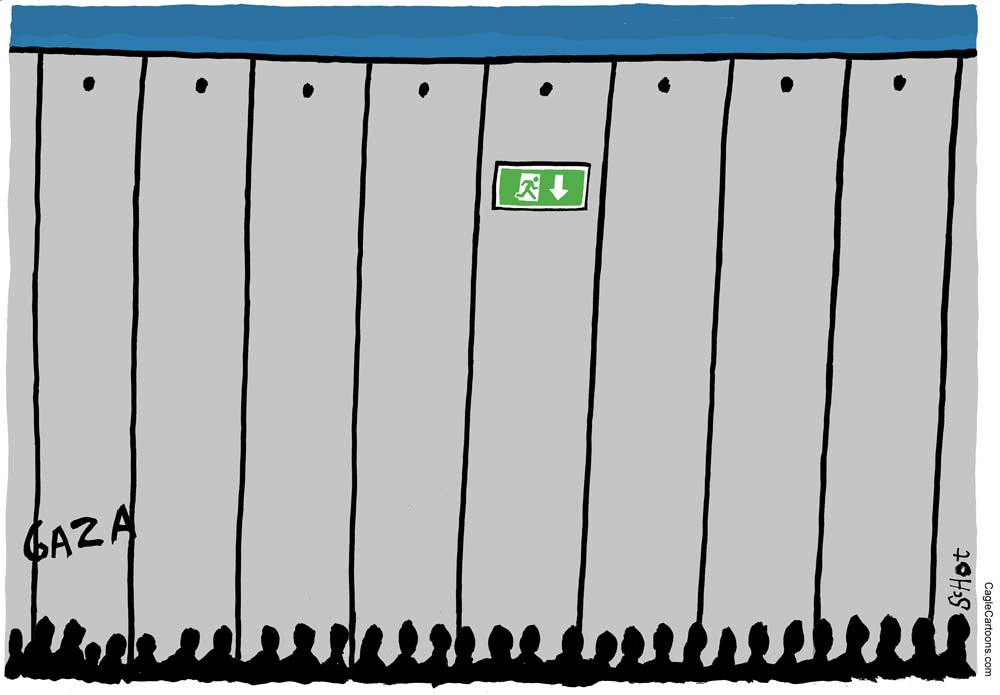
To include your event in the Briefing and Live Calendar, please fill out this form.
Weather: Mostly sunny. Highs in the lower 70s. Northwest winds 10 to 15 mph with gusts up to 25 mph. Monday Night: Mostly clear. Lows around 50. Northwest winds 5 to 10 mph. Check tropical cyclone activity here, and even more details here. See the daily weather briefing from the National Weather Service in Jacksonville here.
Today at a Glance:
The Flagler County Commission meets at 5 p.m. at the Government Services Building, 1769 E. Moody Boulevard, Building 2, Bunnell. Access meeting agendas and materials here. The five county commissioners and their email addresses are listed here.
Nar-Anon Family Groups offers hope and help for families and friends of addicts through a 12-step program, 6 p.m. at St. Mark by the Sea Lutheran Church, 303 Palm Coast Pkwy NE, Palm Coast, Fellowship Hall Entrance. See the website, www.nar-anon.org, or call (800) 477-6291. Find virtual meetings here.
“The Zoo Story” and “White Rabbit Red Rabbit” will be staged at 7:30 p.m. Friday Oct. 13 and Saturday Oct. 14, 3 p.m. Sunday Oct. 15 and 7:30 p.m. Monday Oct. 16. Performances are at City Repertory Theatre, 160 Cypress Point Parkway, Suite B207, Palm Coast. Tickets: $25 adults, $15 students, available online at crtpalmcoast.com or by calling 386-585-9415. Tickets also available at the venue just before curtain time. See Rick de Yampert’s preview: “City Repertory Theatre’s Double Bill of Dares: Albee’s ‘Zoo Story,’ and an Unpredictable ‘Rabbit’.“
In Coming Days:
October 29: Nat Adderley Jr Performs for NEFJA: The North East Florida Jazz Association (NEFJA) is proud to announce that the Nat Adderley Jr. Quartet featuring internationally acclaimed Jazz pianist, bandleader, producer and arranger Nat Adderley, Jr. will be performing a concert at NEFJA’s 20th annual Jeep McCoy Memorial Scholarship Concert Supper, Sunday, October 29 at the Museum of Arts and Sciences in Daytona Beach. Adderley is best known for his more than 20-year tenure as music director, arranger, producer, and frequent co-writer for Rhythm and Blues legend Luther Vandross. His work as a pianist can be heard on countless other studio recordings, as well as all the music used in the Broadway production of August Wilson’s “The Piano Lesson.” The “Jeep” McCoy Memorial Scholarship Concert/Supper will be held from 4 to 7 Pp.m. at the Museum of Arts & Sciences, 352 S. Nova Rd, Daytona Beach. The cost for the Concert AND Supper is $80. Tickets are also available for the concert only at $40. They can be purchased online (with no service charge) at www.nefja.org, at Chez Jacqueline (386-447-1650) in Palm Coast, or by calling Carolyn Hawkins at 386-793-0182 or Muriel McCoy at 386-445-1329. See details here.
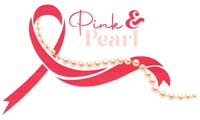 October 31: The Flagler Woman’s Club invites you to its Pink & Pearl Workshop spotlighting Breast and Lung Cancer Awareness at 9:30 am at the clubhouse located at 1524 S Central Ave, Flagler Beach. Free to the public, men and women welcome. This will be an interactive program presented by Halifax Health Grant Cancer Center for Hope Patient Navigators who will discuss the need for Breast and Lung Cancer Screening and the journey into survivorship. Please call Mary at 386-569-7813 or Kathi at 908-839-8862 to reserve your spot.
October 31: The Flagler Woman’s Club invites you to its Pink & Pearl Workshop spotlighting Breast and Lung Cancer Awareness at 9:30 am at the clubhouse located at 1524 S Central Ave, Flagler Beach. Free to the public, men and women welcome. This will be an interactive program presented by Halifax Health Grant Cancer Center for Hope Patient Navigators who will discuss the need for Breast and Lung Cancer Screening and the journey into survivorship. Please call Mary at 386-569-7813 or Kathi at 908-839-8862 to reserve your spot.
Notably: The website Atlas Obscura (“our mission is to inspire wonder and curiosity about the incredible world we all share”), obscure to me until I discovered it Sunday afternoon in search of a little history on the Puritan practice of “bundling,” devoted an article to the subject: “The Awkward 17th-Century Dating Practice That Saw Teens Get Bundled Into Bags.” The article starts: “IF TODAY’S COMPLICATED DATING WORLD disturbs you, imagine being a young woman in love in 17th-century Wales. You can’t wait to begin your life with your beau, but first, you need to prove to your parents that you’re ready to marry—by being bundled up in a sack and put to bed. This unusual courtship ritual had a standard format. Step one: invite your date home to meet your parents. Step two: watch in horror as your mother ties you up from feet to waist in a heavy sack. Step three: get into your parents’ bed fully clothed next to your date under the watchful eyes of your parents, who place a thick wooden board between you and tuck you in for the night.” Forward to the December 5, 1961 edition of The New York Times, page 45. One of the newspaper’s most famous pages, because it features the headline by Betsy Wade, one of the paper’s first and few women editors, with Matisse’s name upside down (“Modern Museum Is Startled by Matisse Picture.” The museum had hung Matisse’s “Le Bateau” upside down for 47 days, 116,000 visitors, including matisse’s son, had not noticed, until a Wall Street stockbroker, Genevieve Habert and former Paris resident, noticed the mistake. But that’s not the story that caught my eye when I looked up the Matisse item. The lead story on the page, which back then served as the metropolitan section’s front page (before the era of sections the Times began in the early 1970s), was this: “School Censors Bundling in Book.” That story, datelined Levittown (and thereby giving it a future kinship with Palm Coast in more than one way), read: “The Puritans took the custom of bundling pretty much in their stride 300 years ago, but the early courting practice has been termed too racy even for study now by high school seniors here. Last week Ernest J. Orlandini, chairman of the Social Studies Department at the Gen. Douglas MacArthur High School, removed four pages on the subject of bundling from a history book. He charged they were ‘in bad taste and might even be immoral.’ High school students and their parents have protested, and it has been suggested in some indignant quarters that other bits of early American history, like the Boston Massacre, might also be considered ‘in bad taste.’ There was added indignation that Mr. Orlandini had torn the pages from books the students had purchased themselves.” That perhaps begins to explain a whole lot of bundling going on between certains Flagler County school board members. Surely you know who they are. More on the subject in the quote below. (Postmortem: I googled Ernest J. Orlandini. He died barely a year ago, on July 1, 2022, at age 95. He had lived in Levittown all his life.
—P.T.
Now this:
View this profile on Instagram
![]()
The Live Calendar is a compendium of local and regional political, civic and cultural events. You can input your own calendar events directly onto the site as you wish them to appear (pending approval of course). To include your event in the Live Calendar, please fill out this form.
January 2026
Temple Beth Shalom Blessing of the Pets
Nar-Anon Family Group
Palm Coast Charter Review Committee Meeting
Bunnell City Commission Meeting
Palm Coast City Council Workshop
Flagler Beach United Methodist Church Food Pantry
Community Preparedness Workshop
Flagler County School Board Information Workshop
Flagler County Affordable Housing Committee Meeting
Weekly Chess Club for Teens, Ages 10-18, at the Flagler County Public Library
Book Dragons, the Kids’ Book Club, at Flagler Beach Public Library
Budgeting by Values: A Virtual Class to Learn Budgeting Skills
NAACP Flagler Branch General Membership Meeting
Flagler County School Board Meeting
Random Acts of Insanity Standup Comedy
For the full calendar, go here.
![]()

Might there have been courtship customs that acted as a safety valve? In many parts of northwest Europe there is evidence that among the poor there was a custom that formed no part of the Church’s official moral system–the formal sharing of a bed by courting couples, subject to widely recognized constraints about what sort of sexual contact was permissible. When the custom arrived in North America, where it lasted into the nineteenth century, it was known as “bundling,” but curiously there is an almost total silence about the practice from the obvious possible source for its American manifestation, England. What does that leave? Apart from the chastity recommended by the authorities, the alternatives would include masturbation, heavy petting, heterosexual anal intercourse, and resort to prostitutes–there is plenty of evidence for that last activity, though as we will see, official attitudes to prostitution hardened in the sixteenth century (…). There have been some attempts to assess this most private of areas in human experience. The tentative conclusion is that before the eighteenth century, much more heterosexual sexual activity was nonpenetrative, and therefore nonprocreative, than it was later. And in a world of small crowded houses where it was routine for people of the same sex to share beds, there was another alternative: the discreet practice of homosexuality.
–From Diarmaid MacCulloch’s The Reformation (2003).







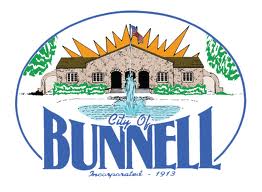




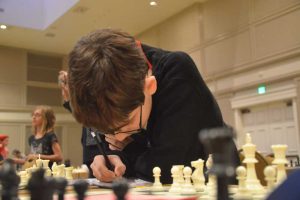
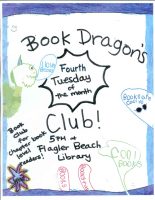

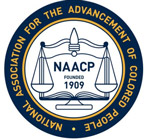



























Leave a Reply